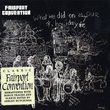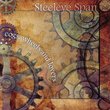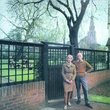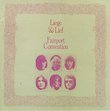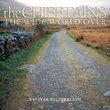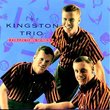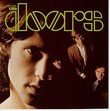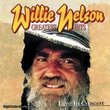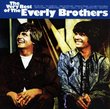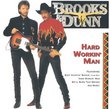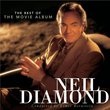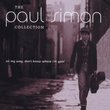| All Artists: Steeleye Span Title: Lark in the Morning Members Wishing: 10 Total Copies: 0 Label: Castle Music UK Release Date: 9/16/2003 Album Type: Extra tracks, Import Genres: Folk, International Music, Pop, Rock, Classical Styles: British & Celtic Folk, Folk Rock Number of Discs: 2 SwapaCD Credits: 2 UPC: 766482710942 |
Search - Steeleye Span :: Lark in the Morning
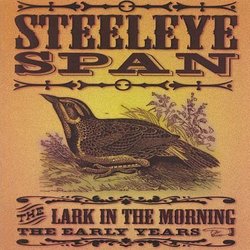 | Steeleye Span Lark in the Morning Genres: Folk, International Music, Pop, Rock, Classical
2003 compilation combines the UK folk band's first three albums, 'Hark! The Village Wait' (1970), 'Please To See The King' (1971), & 'Ten Man Mop Or Mr. Reservoir Butler Rides Again' (1971). Includes 12-page booklet ... more » |
Larger Image |
CD DetailsSynopsis
Album Description 2003 compilation combines the UK folk band's first three albums, 'Hark! The Village Wait' (1970), 'Please To See The King' (1971), & 'Ten Man Mop Or Mr. Reservoir Butler Rides Again' (1971). Includes 12-page booklet with liner notes by the band members, photos & credits. 33 tracks. Castle. Similar CDs
Similarly Requested CDs
|
CD ReviewsEssential Folk-Rock Laurence Upton | Wilts, UK | 07/24/2008 (5 out of 5 stars) "I'm not sure that the cross-over success of All Around My Hat in 1975 did Steeleye Span or the folk-movement any long term favours. They never hit the charts again, and folk and folk-rock, both undergoing something of a renaissance, began their retreat underground, though there is no proven link between the two. The producers of Top Of The Pops may have relished the thought of the band in pixie-garb and tinkling bells skipping around a maypole, Pan's People style, but trivialising hundreds of years of folk heritage to the level of the Wombles couldn't ultimately enhance the movement's credibility. Although they succeeded in popularizing the music and bringing it into the mainstream for a while, something was lost in the process. In particular, it led to their earlier and finest work becoming overshadowed. Hark! The Village Wait (1970) was a marvelous and groundbreaking album, to stand alongside classics like Liege And Lief, and featured the original line-up that included Gay and Terry Woods. Gay's vocals alongside Maddy Prior's gave the band a very special sound (see A Calling On Song and My Johnny Was A Shoemaker for the full accapella effect). The Woods introduced an element of Irish traditional music to the mix that founder member Ashley Hutchings had originally intended to be purely English, and this continued on the second album, Please To See The King (1971), even though Gay and Terry had left, leaving Maddy as the only girl in the group. In their place came the veritable Martin Carthy (who collected and brought to the band such songs as Cold, Haily, Windy Night; Boys Of Bedlam, based on an 18th century poem; and False Knight On The Road) and Peter Knight, a classically trained violinist. The difference in approach is demonstrated on the song The Blacksmith, a version of which appears on each album, both great, augmented by drums on the earlier arrangement. Please To See The King is an uncompromising, timeless album and both its line-up and style survived for their third LP, Ten Man Mop (1972). That they were not just a vocal-led band is demonstrated on three excellent instrumental medleys of jigs and reels found on Please To See The King and Ten Man Mop. The Dark-Eyed Sailor is a folk club favourite and there are many wonderful records of it, featuring Carolyn Hester, June Tabor, Kate Rusby and Kathryn Roberts among many, but I think the stately rendition on Hark! The Village Wait, led by Gay Woods with Maddy Prior's harmonies bests them all. The accapella version of Buddy Holly's Rave On that started life as a bit of a joke also works really well. It is a rare American influence on the record and shows that a good song is a good song regardless. The important thing to note about The Lark In The Morning - The Early Years is that it is not a compendium of the best of the first three albums; it is all three albums in their entirety, spread over 2 CDs, and therefore represents a considerable bargain. There is even a bonus track: General Taylor, another accapella tune, left over from the Ten Man Mop sessions. It found a place on a various artists compilation the following year. File under: Essential Folk-Rock" Steeleye Span meets the loudness war Pedro Corbett | Rio de Janeiro, BRAZIL | 03/05/2010 (2 out of 5 stars) "Yes, they did it again. Besides pushing every frequency range to the limits, they managed to actually cripple the songs with over 200 clipped samples on disc 1 and over 900 on disc 2. This happens when the sound levels go beyond the limits of the audio CD specifications and parts of the sound wave are "cut off" - or, in other words, the waveform literally flatlines and any sound at those points is simply lost. Even in the parts where clipping does not occur, the absurd raising of the sound levels results in some very uncomfortable listening. All instruments and vocals have had their volumes raised to the same high levels, resulting in a complete loss of the dynamics of the songs, with instruments that were originally very quiet now sounding as loud as everything else. Why can't these audio "engineers" go work in some other field more adequate to their abilities like dog walking or whatever, thus avoiding criminally maiming classic, essential music like this?" Quintessential Steeleye Span Gina C. Moss | Greensboro, NC USA | 01/21/2008 (5 out of 5 stars) "The Lark in the Morning: The Early Years
More bang for your buck. Two CDs packed to the gills with brilliant folksongs, fantastic instrumentals and harmonies plus delightful lyrics. If you love Irish and English folk music you must own this CD. If it is possible to wear out a CD, you will wear this one thin. :) Enjoy" |

 Track Listings (18) - Disc #1
Track Listings (18) - Disc #1